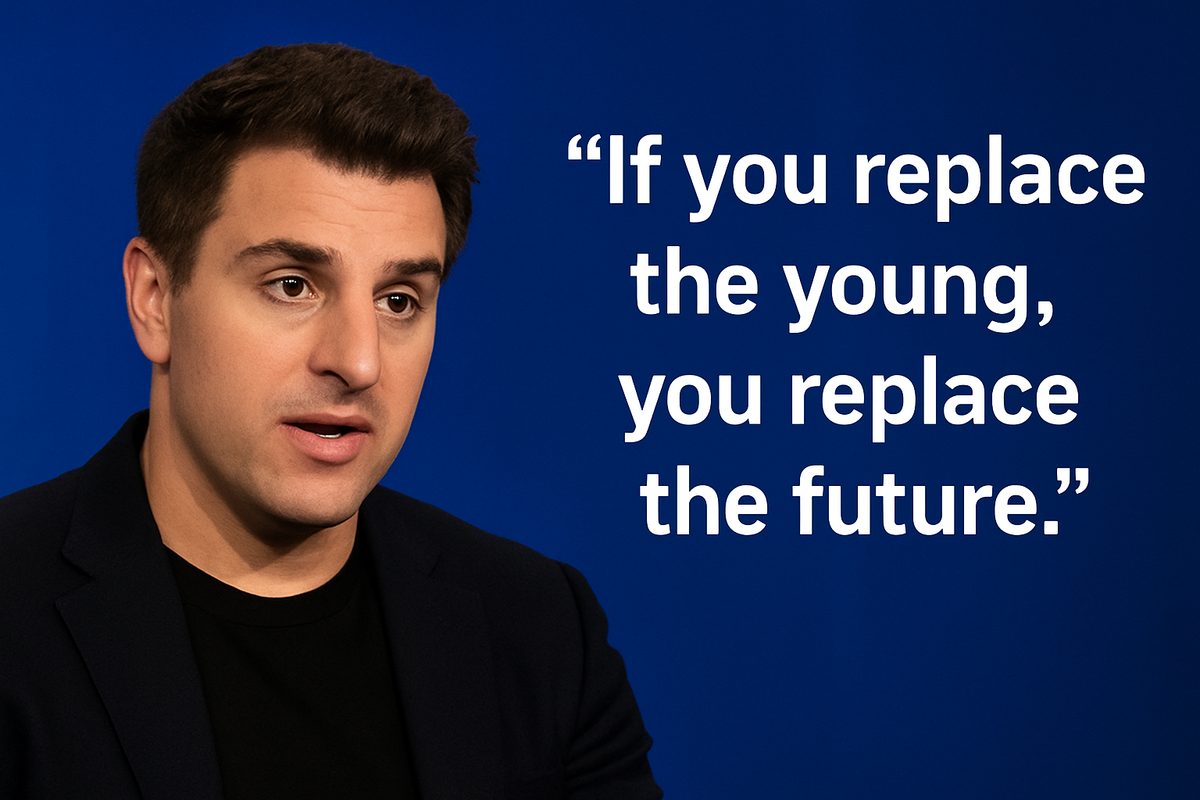Airbnb’s Brian Chesky Warns: “If You Replace the Young, You Replace the Future”
Can you replace humans with AI? Brian Chesky on how human creativity, empathy, and growth could be lost if companies treat AI as a substitute instead of a support system.

When Airbnb CEO Brian Chesky speaks about artificial intelligence, it’s not with the enthusiasm of a technologist but with the empathy of a designer who sees the potential in human creativity and intervention.
In a recent conversation with ABC News, Chesky sounded a note of concern about the accelerating corporate trend to replace entry-level employees with AI systems. To him, this doesn't just pose an economic danger, but also a generational one. “If no young people can get jobs,” he said, “then you have no one in the future to do the highly strategic, leadership positions.”
His voice carried the weight of someone who built a multibillion-dollar company from an idea on a piece of paper; who knows what it means to start small, and how fragile that first rung on the career ladder can be.
“AI can do a lot of lower-level jobs, but it can’t think in truly novel ways. It has to be told what to do every step of the way", Chesky acknowledged.
Automation to Cripple Human Creativity?
For him, the essence of being human is to understand the difference between imitation and imagination. And losing the environments where young people learn to think, lead, and make mistakes would, he fears, hollow out the future of work itself.
Chesky’s warning lands at a time when many industries are rushing to automate. Chatbots are taking over customer support, generative design tools are drafting campaigns, and algorithms are writing lines of code that once took junior engineers days to craft. To investors, it’s efficiency. To Chesky, it’s short-sighted.
He argues that the first jobs are often the unglamorous ones where curiosity meets resilience. They teach the human elements of collaboration, conflict, and intuition; human attributes that cannot be downloaded.
Reimagining AI and its Potential
At Airbnb, Chesky says, technology should “lift people up, not push them out.” The company continues to use AI to streamline creative tasks and assist teams, but he insists its role should remain that of a co-pilot, not a replacement.
His comments have struck a chord with both executives and young professionals navigating a workforce increasingly mediated by algorithms. For many, Chesky’s perspective feels like a breath of sanity in an AI-dominated discourse that often measures success only in speed and savings.
His message is ultimately one of faith that, even in an age of machines that can learn, there’s still nothing more valuable than a human who can imagine.